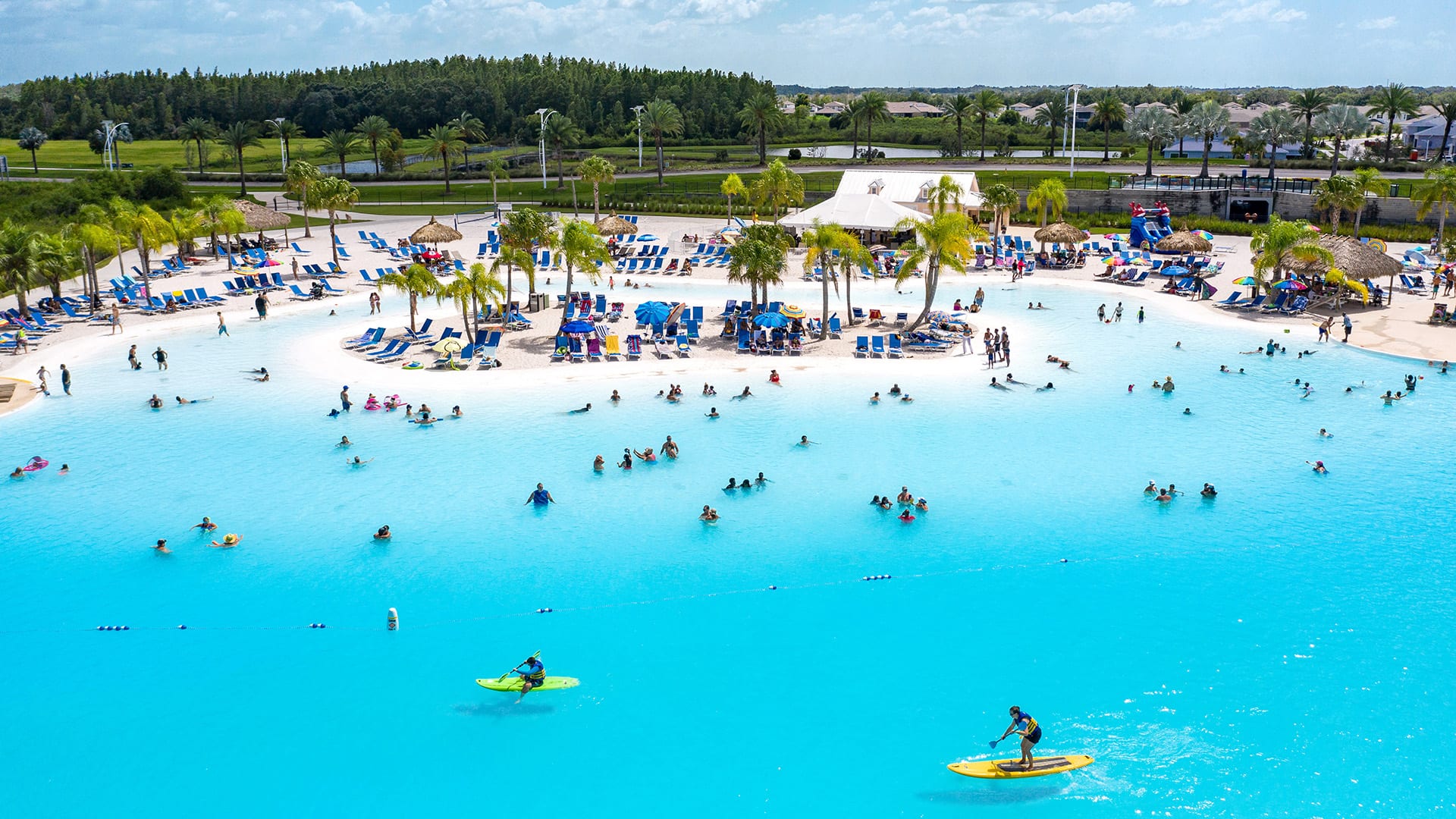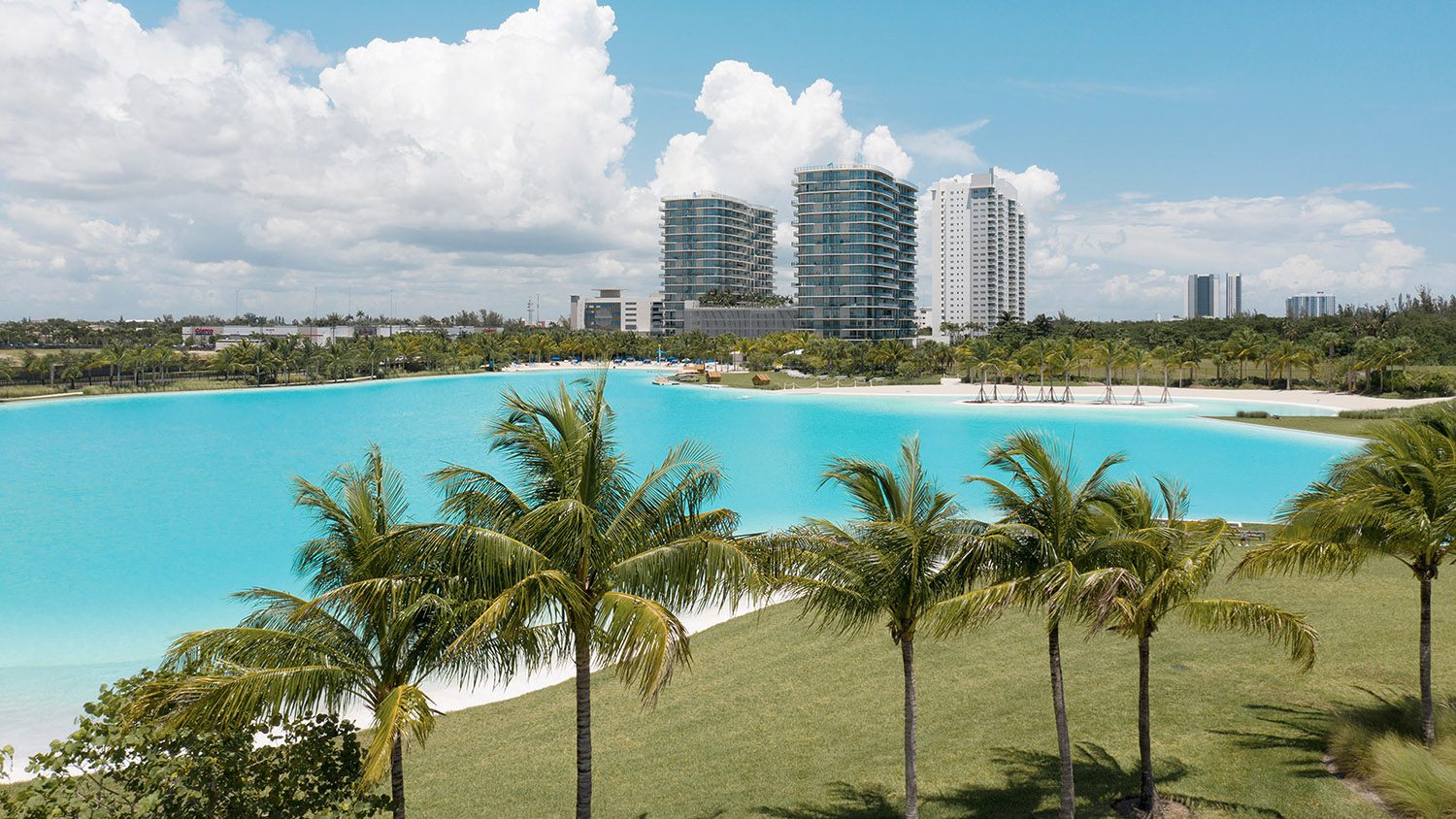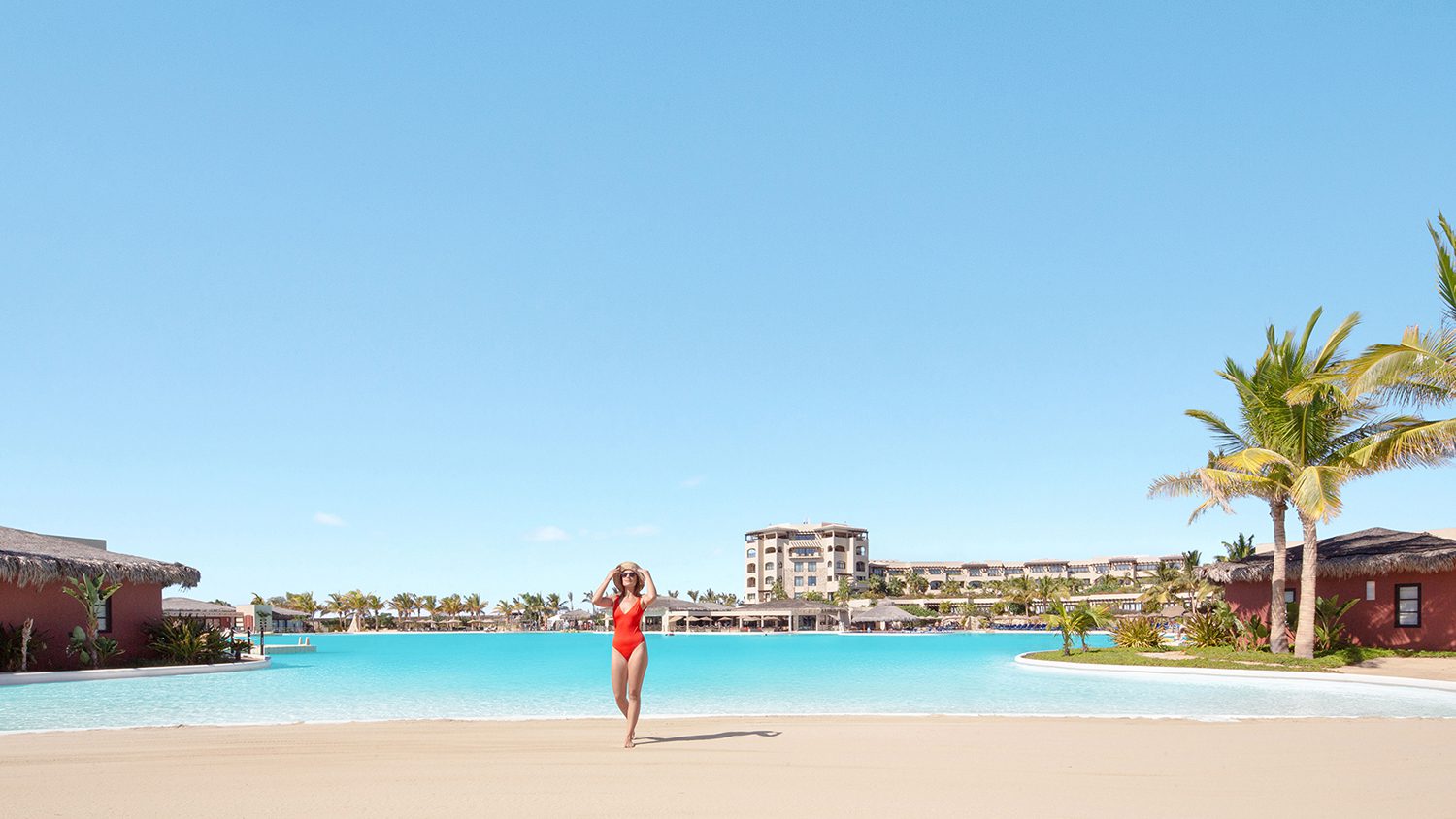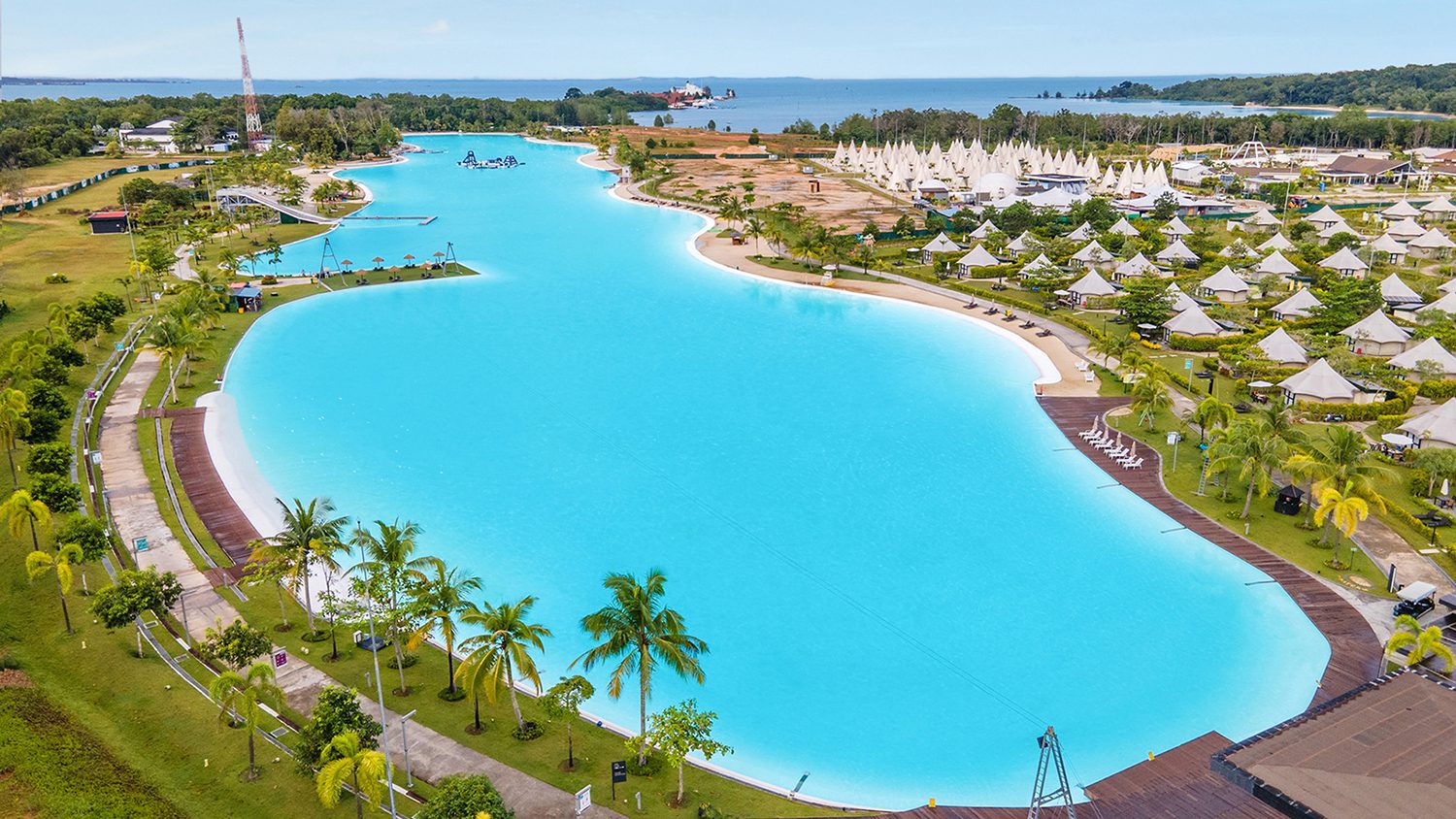Crystal Lagoons U.S. Corp.® Sees Strong Sales Performance and Potential
08/18/2020
With a number of successes in master-planned community amenity developments under its belt, Miami-based technology company Crystal Lagoons® is pursuing a new business model for amenity development, which consists of master licensing agreements for Public Access Lagoons™. The following is a publication released by Builder Online, a U.S. magazine that recently covered the firm’s success in the U.S. market.
The company’s exclusive partners are set to use Crystal Lagoons technology package to create public amenities across the U.S. anchored by beaches, retail, and other attractions. Between December 2019 and May 2020, the company had signed master licensing agreements for 16 new lagoons in the U.S., as well as many more overseas.
While the COVID-19 pandemic has placed restrictions on the company’s activity and prompted the closure of some amenities at the beginning of the pandemic—including the one at the Epperson community in Wesley Chapel, Fla.—Crystal Lagoons anticipates that its amenities will play important roles in a future economic recovery, particularly as sites for “mini-vacations” in a time when air travel is limited.
“Given that these are long-term projects that will not be completed in less than one-and-a-half years, the business’ dynamism hasn’t been affected by the pandemic,” says Iván Manzur, who is expected to assume the position of vice president of sales at Crystal Lagoons U.S. Corp. “On the contrary, we’ve seen investors moving forward, and these projects have been perceived as having a potential of reactivating the economy.”
BUILDER magazine spoke with Manzur about the company’s future plans and sales performance, as well as its management of the COVID-19 pandemic, opportunities as travel and recreation habits shift, and expectations for business under the “new normal.”
BUILDER: How has your public access lagoon business expanded in the U.S. over the past year? Can you tell me about the status of some of your projects?
Manzur: The United States is one of the main markets for Public Access Lagoons™, also known as PAL™. Although these projects started as real estate, they quickly converted to the PAL business model, as in the case of Epperson, which opened up a section of the lagoon allowing public access. People started going to the beach, and the outcome has been so remarkable that the development has often had to close the doors to control the flow of visitors.
Later, PAL projects emerged, with public access only, which were in association with amusement parks, for example. Since, the growth has spiked producing the first master licenses with renowned multinational companies, such as the signing with Epic to develop 16 projects across the U.S. Our business plan shows a potential projection of 1,000 developments of this type in the U.S. alone.
BUILDER: How do you believe economic reactivation measures will affect Crystal Lagoons?
Manzur: Every reactivation measure promoted by the U.S. is important. In the case of Crystal Lagoons, we can divide ours into two aspects. Regarding real estate projects that are currently in development, the measures will allow, in the short term, to increase the purchase of properties while also allowing people to partially restore the normality they are accustomed to.
In the case of PAL projects to be developed in the medium or long term, these reactivation measures will likely not have a major impact.
BUILDER: According to Crystal Lagoons, the company expects that families will look to have “mini holidays” in lieu of air travel this summer. Can you elaborate on this idea?
Manzur: The pandemic, even if it’s controlled in the future (vaccines, etc.), may change certain social habits, such as avoiding plane trips to distant locations due to risks associated with large groups of people boarding planes, at airports, confinement in planes, coming into contact with people from other countries where infection rates are possibly unpredictable, etc.
Being able to have beach life and recreational activities close to home reduces considerably many of these risks and could become a future trend.
Touristic destinations and public beaches are difficult to control on a sanitary level. On the other hand, on a private beach, such as is the case of PAL, access can be controlled by using tests, regulating its capacity, ensuring distances are respected, etc.
In fact, investors have identified that people will prefer to unwind in areas close to home, which will require infrastructure to be developed. These types of areas within cities will be especially necessary after confinement.
This concept of beach life just steps away from home positively impacts people’s carbon footprint and reduces the impact on biodiversity in natural places.
BUILDER: How have Crystal Lagoons amenities in residential communities fared? How are communities implementing safety measures?
Manzur: Epperson reopened its doors once COVID restrictions were lifted and has received a large number of people. What’s surprising is that, despite the current economic situation, commercial activity has been maintained, confirming the good results that Crystal Lagoons projects have always experienced in the U.S. An example of this are three new projects soon to open in Florida (Southshore Bay, Mirada, and Avenir) and Sierra Vista in Houston.
As for preventive measures, although the amenities and lagoons in the real estate projects were closed for a month, they are reopening and starting to operate normally.
BUILDER: What do you believe the future will hold for Crystal Lagoons?
Manzur: As previously mentioned, Crystal Lagoons is undergoing a structural change, registering the highest sales in its history, and is dynamically closing contracts.
Along with the master licenses previously signed around the world and the above mentioned negotiations, we’ve seen that there is a large market in the main U.S. mall chains, as several need to reinvent themselves and we’re in advanced conversations with them. The fall in their sales caused by e-commerce and an increase in unoccupied spaces has forced them to introduce new functional alternatives and new experiences, such as these lagoons.
Malls see in PAL a new hook or “anchor” to attract public. There is an important market here, and we foresee a great future reconverting these shopping centers.
Crystal Lagoons is an international innovation company, founded by scientist Fernando Fischmann, which has developed a patent-protected technology that allows the construction and maintenance of unlimited-size clear water lagoons at very low costs.
Featured News

The hallmark of the new generation of Crystal Lagoons
04/13/2023
Crystal Lagoons – the multinational innovation company, founded by scientist Fernando Fischmann– is a case...

Crystal Lagoons inaugurates South Africa’s largest crystalline lagoon
04/08/2023
Unprecedented commercial success, multiple awards, and accolades from the President of the Republic are just...

Press highlights PAL™ Treasure Bay project as a major tourist attraction in Indonesia
04/03/2023
Southeast Asia’s largest crystalline lagoon developed with Crystal Lagoons® technology is located in Indonesia, in...








